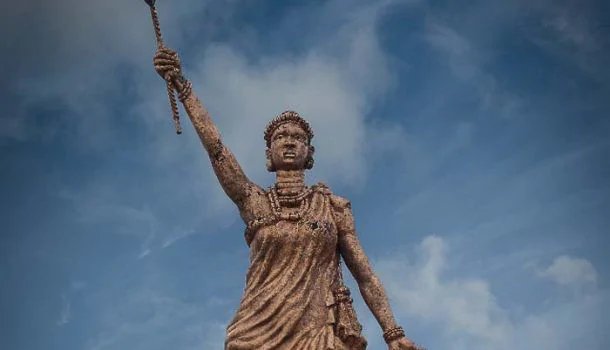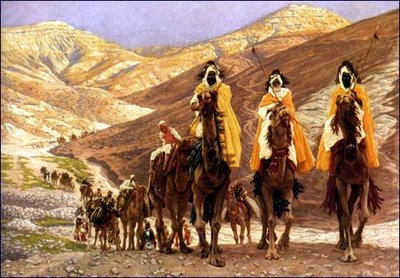
Most powerful African queens in history
#Thread
1. Amina the Queen of Zaria Nigeria
Amina Mohamud was a Hausa warrior queen of the city-state Zazzau, presently in the North-West region of Nigeria.
#Thread
1. Amina the Queen of Zaria Nigeria
Amina Mohamud was a Hausa warrior queen of the city-state Zazzau, presently in the North-West region of Nigeria.

Her leadership skills were discovered early by her grandfather who allowed her to attend state meetings. Historians described her as one of the real rulers born in the mid-sixteenth century. Born into a royal family, she chose to embrace her military skills and became one of the
greatest warriors in her kingdom. Through her wisdom and smart tactics, she increased Zazzau's borders and made the city a centre of trade in the West African and Saharan region. The beauty was also the brains behind Hausaland's fortified walls.
2. Kandake - the empress of Ethiopia
Kandake or Candace was regarded as one of the most dreaded war generals of her time. Historians said she was known to be a fierce, tactical and uniting military leader. She was also referred to as Candace, and she was
Kandake or Candace was regarded as one of the most dreaded war generals of her time. Historians said she was known to be a fierce, tactical and uniting military leader. She was also referred to as Candace, and she was

highly regarded as the most feared generals during her tenure. According to historians, she was tactical and fierce, as well as uniting. She was known to have excellent military commanding skills, which saw her become one of the strongest and fierce female military tacticians.
3. Makeda - The Queen of Sheba, Ethiopia
Makeda was known to be a queen of incredible strength, after surviving a battle with the serpent king Awre. According to Ethiopia's 14th century's royal epic, Makeda was one of the great African queens. It is believed that she survived
Makeda was known to be a queen of incredible strength, after surviving a battle with the serpent king Awre. According to Ethiopia's 14th century's royal epic, Makeda was one of the great African queens. It is believed that she survived

a battle with the serpent King Awre, who was troubling the northern Ethiopian Kingdom of Axum. After emerging the victor of the battle, she became the queen of Axum. She is one of the African queens in the Bible. She is famous for her story with the biblical figure,
King Solomon of Jerusalem. They had a son together and named him Menelik 1, meaning son of the wise. Menelik 1 became the first imperial ruler of Ethiopia and the first of the Aksûmite kings' line.
According to history, she and her son returned the Ark of the Covenant to Axum. It is through them that the lineage of the great East African and Nubian kings was established.
4. Nefertiti - Queen of Ancient Kemet, Egypt
She is one of the great African queens from ancient Egypt. The woman was an epitome of beauty, strength, and power. According to history, she was born in a state located in modern-day Syria or the town of Akhmim.
She is one of the great African queens from ancient Egypt. The woman was an epitome of beauty, strength, and power. According to history, she was born in a state located in modern-day Syria or the town of Akhmim.

She is believed to have married Akhenaten, who ruled Egypt from 1353 to 1336 B.C. They became parents to six children, including the famous King Tutankhamun. She and the king were behind the expansion of the Egyptian nation. They were also responsible for establishing
the cult of Aten, the Egyptian culture, promoting the country's language and artwork. The couple was renowned for displaying their love in public, and by so doing, changed the culture. The beauty was portrayed as a woman of power and authority.
5. Yaa Asantewaa of the Asante Kingdon, Ghana
She led the Ashanti rebellion in 1990. It was also referred to as the Yaa Asantewaa War or the Golden Stool war against British colonialism. She was born on October 17, 1840, and she died on October 17, 1921.
She led the Ashanti rebellion in 1990. It was also referred to as the Yaa Asantewaa War or the Golden Stool war against British colonialism. She was born on October 17, 1840, and she died on October 17, 1921.

She rose to power after she was appointed by her brother Nana Akwasi of the Edwesu kingdom.
6. Queen Moremi of Ile-Ife Kingdom, Nigeria
She was a courageous woman and is believed to have contributed to the Yoruba tribe's liberation from oppression. She willingly surrendered to the invaders, got married to the enemy king, and seized the opportunity
She was a courageous woman and is believed to have contributed to the Yoruba tribe's liberation from oppression. She willingly surrendered to the invaders, got married to the enemy king, and seized the opportunity

to discover the secrets of the group’s military strategy. She revealed that secret to the Ile-Ife people after she had managed to escape. She subsequently helped to devise a plan that led to Ile-Ife’s resounding victory over the invaders.
7. Queen Nandi of the Zulu kingdom
She is one of the ancient African queens and the mother of Shaka Zulu, one of the Zulu kingdom's supreme kings. The Zulu kingdom was influential in the Southern African region. She was respectful and assertive when it came to rule the kingdom.
She is one of the ancient African queens and the mother of Shaka Zulu, one of the Zulu kingdom's supreme kings. The Zulu kingdom was influential in the Southern African region. She was respectful and assertive when it came to rule the kingdom.

According to historians, she is believed to have fallen pregnant with Shaka Zulu out of wedlock. She faced great humiliation but remained adamant when it came to raising her son, who was King Senzangakhona's son.
Follow .@Africa_Archives
The list is endless feel free to add other Queens on the #Thread
• • •
Missing some Tweet in this thread? You can try to
force a refresh




























